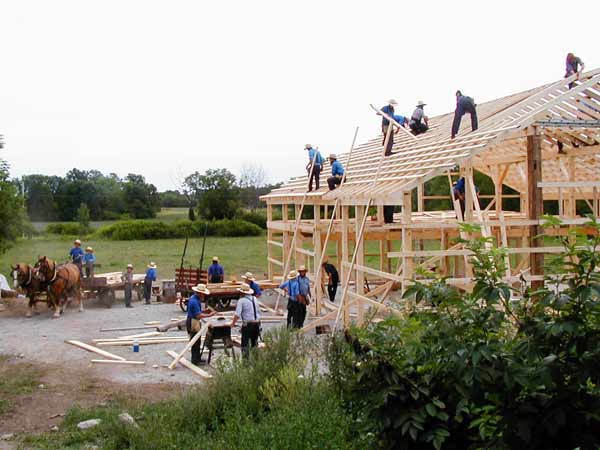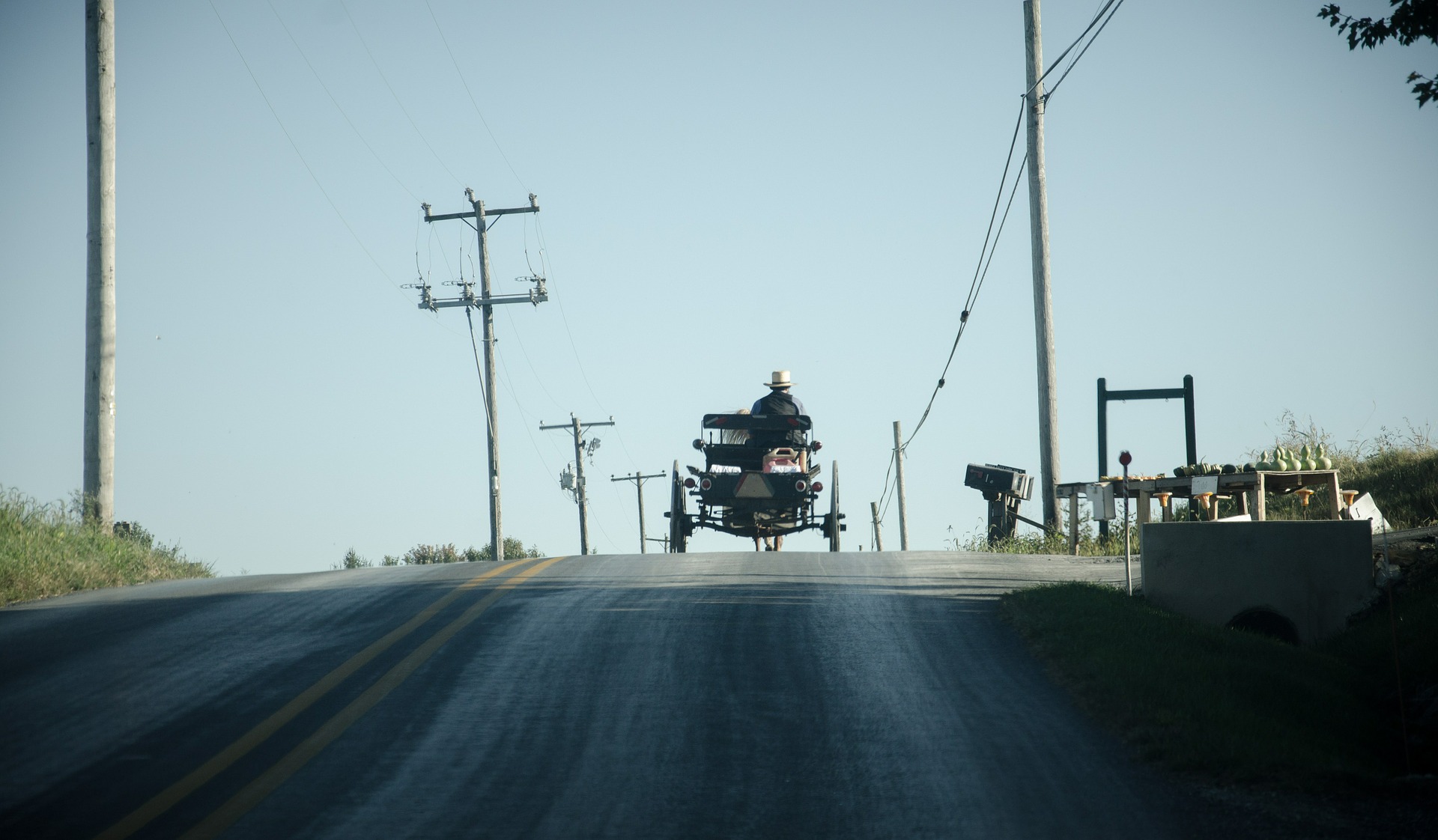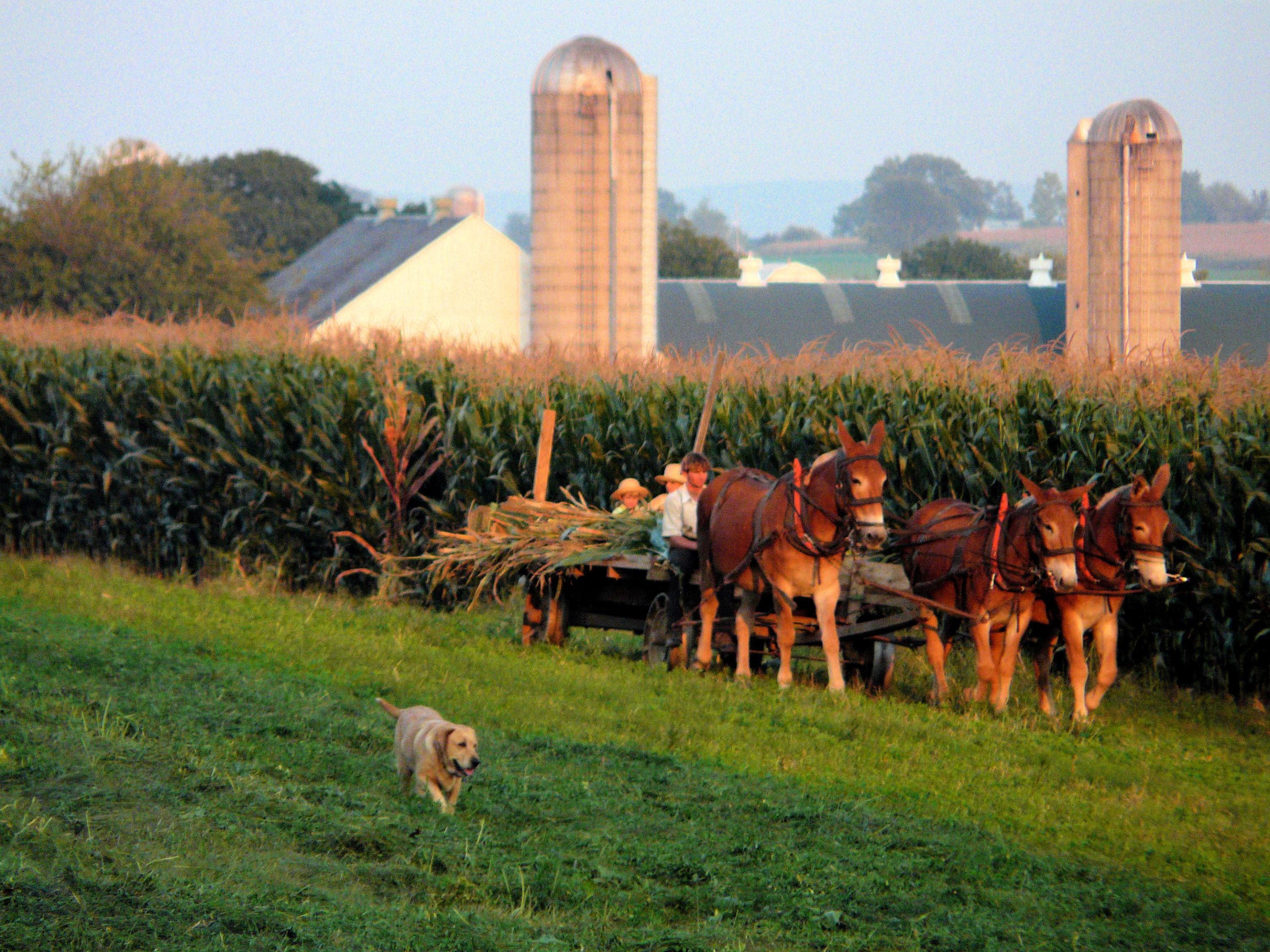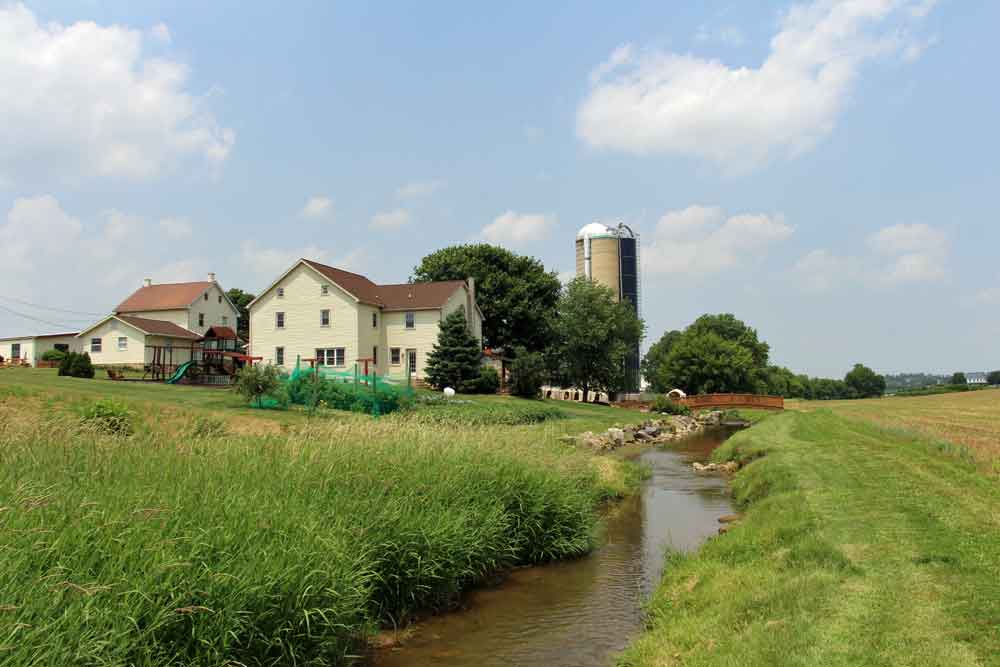As communities across the globe search for a solid sustainable-living model, the answer may live in the corners of the United States. Concentrated mainly in Pennsylvania, Ohio, and Indiana, the Amish community (having lived mostly in seclusion) has been feeling limited effects of today’s environmental destruction, climate change, and crumbling societal structure. By living centuries-old practices, the Amish population continuously denounces modern technology while thriving in close-knit, mostly-agricultural-based communities.
Photo Credit: amishwisdom.com
The original sect of Amish (Alsatian Anabaptists) originates from the teachings of Jakob Ammann in Switzerland in 1693. This original group now consists of a national community totaling nearly 310,000 members within the existing Ordnungs of North America.
A secluded, religious society with extreme dependency on family and community interaction, the Amish are an agrarian community with a centuries-old history of utilizing less energy-intensive (extremely effective) agricultural methods to provide for themselves and the community around them. The low-impact farming practices of today’s Amish farmers have been developed over the past three centuries and have made the Amish community as one of the most successful subcultures in the United States. While traditional, religious rules control farming, their practices depend on traditional elements, such as horse use in farming and transportation and labor by hand, greatly contrasting modern corporate farming. Today’s Amish agriculture is a mixture of traditional practices and new ideas, which greatly reflect the modern sustainable practices that agricultural university researchers are currently studying and implementing across the country in under-privileged communities. The extensive history of what we would call “sustainable production” on many Amish farms is offering researchers an opportunity to study natural pest control, holistic growth, hands-on work and the benefits of living with less.
Related article: ADAPTING TO CLIMATE CHANGE IN PERU
Amish sustainability is a result of denouncing monetary gain in favor of a more wholesome, hands-on lifestyle. Of the many endearing qualities of the Amish community, the greatest model the “English” world could adopt is their commitment to taking care of one another, such as building a barn within a 24-hour period for a newlywed couple or taking a collection for an ill neighbor’s medical bills. The pacifist nature of the Amish community means that they do not believe in insurance, legal implications, physical or emotional fights and of course, personal ownership of an automobile.
 Beyond the condemnation of these common societal staples, almost every Amish family actively teaches healthcare in the form of what we consider alternative medicine. Herbs, tonics, salves, poultices, and use of massage as therapy are common, widely practiced healing techniques across many ordnungs. This might lead readers to believe that Amish seclusion from the rest of the world would make these communities uninformed, or rather, choose to be unaware of the affairs the non-Amish community; this couldn’t be less true. Many Amish people are aware of the internet and often use it in some form in work, as well as using it for their own news publications, published out of Holmes County, Ohio since the late 19th century.
Beyond the condemnation of these common societal staples, almost every Amish family actively teaches healthcare in the form of what we consider alternative medicine. Herbs, tonics, salves, poultices, and use of massage as therapy are common, widely practiced healing techniques across many ordnungs. This might lead readers to believe that Amish seclusion from the rest of the world would make these communities uninformed, or rather, choose to be unaware of the affairs the non-Amish community; this couldn’t be less true. Many Amish people are aware of the internet and often use it in some form in work, as well as using it for their own news publications, published out of Holmes County, Ohio since the late 19th century.
The American Amish community is generally aware of where the outside world is headed in terms of farming practices, consumption, and environmental degradation. With imminent societal collapse in sight many members of the Amish community fear that as the collapse of our current civilization accelerates, the non-Amish world will be overcome with mindless, consuming need and take resources from Amish communities. On the other hand, some Amish people are actively looking forward to teaching the non-Amish about their lifestyle if they are approached. Being extremely self-sufficient aids the Amish in not experiencing as much fear regarding societal collapse as non-Amish people simply because they have a very long history of taking care of their own communities, not sacrificing natural resources and well-being of fellow man for capitalistic gain. Relying on that bond to sustain them in exceedingly difficult times is certainly a lesson non-Amish people could benefit from as we look toward a global sustainable future.
For a full mindmap containing additional related articles and photos, visit #amishclimate
Despite their rigid gender roles and exceedingly high birth rates (often 8-12 children per set of parents) the Amish community benefits from a thoughtful education and many Amish children are bilingual, being proficient in English and a German dialect, often referred to as Pennsylvania Dutch. Based on the values of the bible, the Amish live and act the values of Christianity rather than preaching and teaching this message to outsiders. This peaceful approach to living leaves many that live and work around the Amish to feel a humble love around them – these would be the people to ask for assistance if you are in need of help (even help as big as teaching us to save the planet).
Photo Credit: Lancasterfarmbnb.com
This humble, loving spirit excludes the Amish from many of the Western world’s issues such as war, political unrest, and monetary sabotage. While their religion is Christian and not polytheistic animism, they feel blessed by the earth and see it as a gift from God. This gift is greatly cherished and the Amish community does whatever it takes to consciously protect and preserve the land and all living things. This spiritual practice makes every Amish man and woman’s life about service whether in a formally structured setting or simply living a life devout to the earth and fellow man.
Technology is currently leading our fight in combating environmental and societal catastrophe, but have we overlooked lifestyle techniques that can save the planet as well as our crumbling societal infrastructure? With a little ingenuity, humility and a willingness to work hard maybe we just need to look a few steps back to look toward the future – or possibly to the rolling green hills of Pennsylvania, Ohio, and Indiana for advice from a friendly face.
Recommended reading: AMISH FARMERS AND CLIMATE CHANGE
_ _
EDITOR’S NOTE: THE OPINIONS EXPRESSED HERE BY IMPAKTER.COM COLUMNISTS ARE THEIR OWN, NOT THOSE OF IMPAKTER.COM.
Feature Photo Credit: Johannes Wünsch & Harvesthastings.ca












